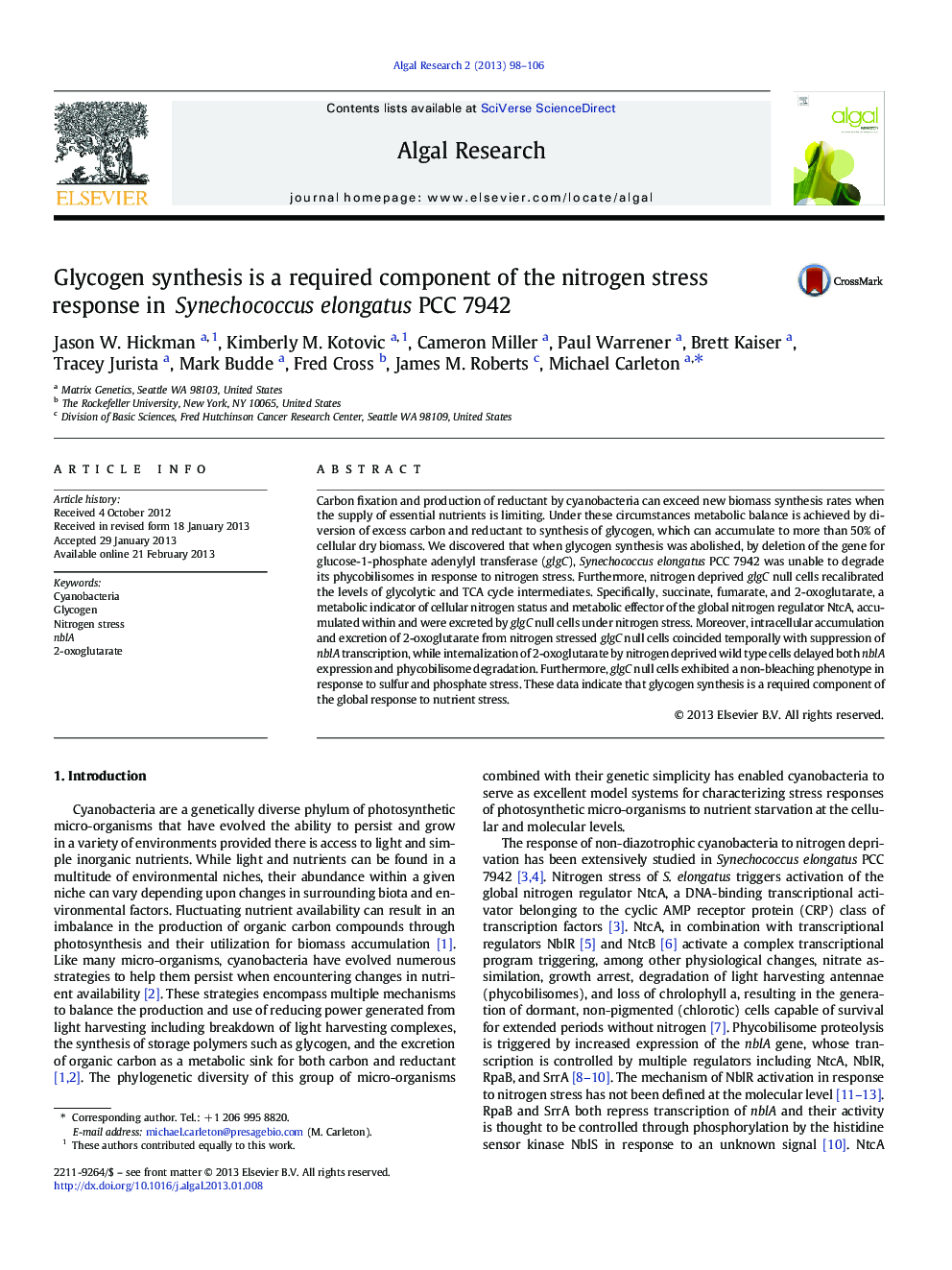| Article ID | Journal | Published Year | Pages | File Type |
|---|---|---|---|---|
| 1742120 | Algal Research | 2013 | 9 Pages |
Carbon fixation and production of reductant by cyanobacteria can exceed new biomass synthesis rates when the supply of essential nutrients is limiting. Under these circumstances metabolic balance is achieved by diversion of excess carbon and reductant to synthesis of glycogen, which can accumulate to more than 50% of cellular dry biomass. We discovered that when glycogen synthesis was abolished, by deletion of the gene for glucose-1-phosphate adenylyl transferase (glgC), Synechococcus elongatus PCC 7942 was unable to degrade its phycobilisomes in response to nitrogen stress. Furthermore, nitrogen deprived glgC null cells recalibrated the levels of glycolytic and TCA cycle intermediates. Specifically, succinate, fumarate, and 2-oxoglutarate, a metabolic indicator of cellular nitrogen status and metabolic effector of the global nitrogen regulator NtcA, accumulated within and were excreted by glgC null cells under nitrogen stress. Moreover, intracellular accumulation and excretion of 2-oxoglutarate from nitrogen stressed glgC null cells coincided temporally with suppression of nblA transcription, while internalization of 2-oxoglutarate by nitrogen deprived wild type cells delayed both nblA expression and phycobilisome degradation. Furthermore, glgC null cells exhibited a non-bleaching phenotype in response to sulfur and phosphate stress. These data indicate that glycogen synthesis is a required component of the global response to nutrient stress.
► Glycogen synthesis is required for chlorosis during nutrient deprivation. ► Nitrogen deprived glycogen mutants display altered intracellular metabolite levels. ► Glycogen mutants excrete TCA cycle intermediates during nitrogen deprivation. ► Glycogen mutants display altered transcription of nblA during nitrogen deprivation.
